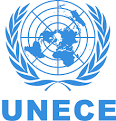Chemycal has been acquired by 3E
Learn MoreChemycal has been acquired by 3E
Learn MoreDiscover how Chemycal PRO helps you boosting your regulatory monitoring:

Designing policies, tracking progress and holding policymakers accountable for their decisions depends on high quality, reliable and comparable statistical indicators. The essential role of data and statistics for fulfilling the SDGs is marked by their inclusion within the goals themselves: goal 17, partnerships for the goals, calls for increased availability and quality of data (target 17.18) and statistical capacity building for improved measurement of progress (target 17.19).
UNECE’s Knowledge Hub on Statistics for SDGs was launched today, helping countries to develop and communicate statistics that enable them to better formulate, evaluate and inform stakeholders about evidence-driven policies.
Recognizing the crucial part they have to play in achieving the 2030 Agenda, in 2015 the Chief Statisticians of the Conference of European Statisticians adopted a Declaration on the role of national statistical offices in measuring and monitoring the SDGs. The Knowledge Hub is a direct response to the promises made in this declaration, focusing on international coordination, capacity development and promotion of statistically sound methodology.
Aimed at producers of national official statistics and other statistical experts, the Knowledge Hub offers a suite of guidelines and tools produced by the UNECE Steering Group on Statistics for SDGs and its task teams, including a practical guide to developing national reporting platforms; generic presentation tools; and tools for countries to conduct self-assessments of their data and indicator availability.
Task teams of experts from across the UNECE region work on data flows, national reporting platforms, statistical capacity development and communication of statistics for SDGs. The products of their work, as well as of the Steering Group led by Poland and Sweden that oversees all these activities, can also be found on the Knowledge Hub.
CONTINUE READING ON www.unece.org
2013 © MyChemicalMonitoring. ALL Rights Reserved. About Us | Terms and Conditions